In northern Ghana, hundreds of women—mostly elderly, widowed, and impoverished—live in exile after being accused of witchcraft. Cast out by their families and communities, they take refuge in so-called “witch camps” where life is marked by stigma and hardship.
But alongside this injustice, there are powerful stories of resistance, advocacy, and hope. For decades, local NGOs, human rights advocates, and religious leaders have worked to protect these women, restore dignity, and push for systemic change. The Presbyterian Church has sheltered and supported survivors in Gambaga since the 1990s, while grassroots organizations such as Songtaba and ActionAid Ghana provide mediation, education campaigns, and reintegration programs. Their efforts have already helped hundreds of women safely return to their families.
The Sanneh Institute in Accra leads a coalition of activists and scholars lobbying for legislative reform. In 2023, Ghana’s Parliament passed the Anti-Witchcraft Bill, but the then-president refused to sign it into law. In March 2025, the bill was reintroduced and is now awaiting debate in Parliament. Advocates believe the new president will sign it if passed—making this a pivotal moment in the fight for justice.
Here, media attention can play a decisive role. International coverage of high-profile cases—such as the lynching of 90-year-old Akua Denteh in 2020—has already galvanized outrage. Sustained visibility can continue to spotlight survivors’ stories, pressure policymakers, and help ensure that the bill finally becomes law.
This photo series documents not only the pain of exile but also the resilience of those fighting to end it. By showing the women’s daily lives alongside the efforts of those advocating for change, it shifts the narrative from despair to possibility—demonstrating that systemic change is within reach, if advocacy and awareness continue.
This project was supported by the Pulitzer Center.
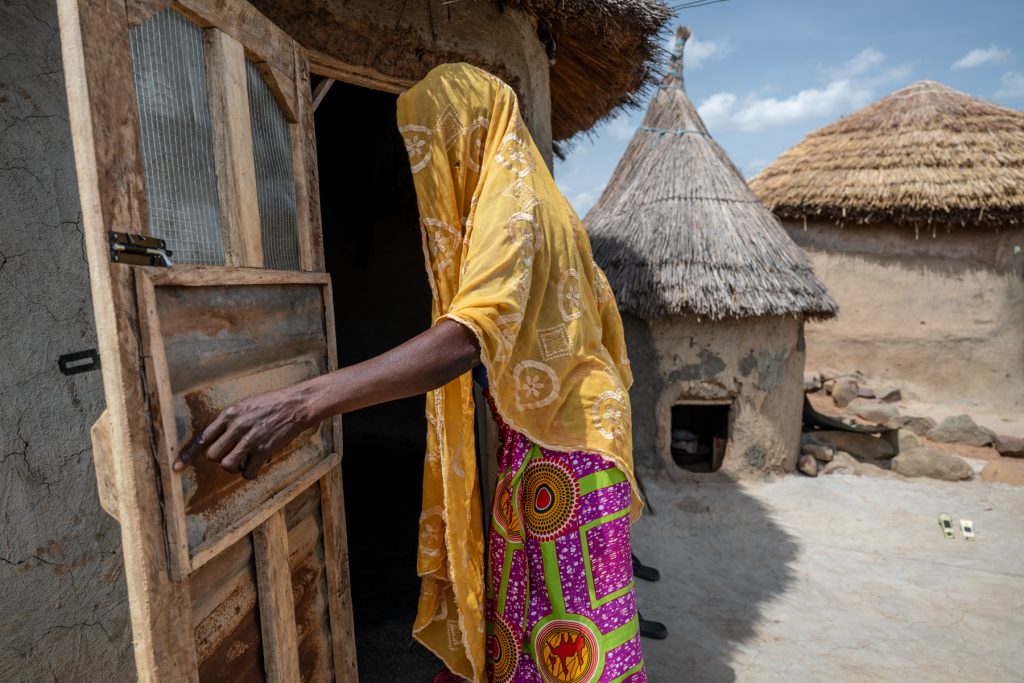
Fusheina's Home in Exile
Fusheina opens the door to her hut in the Gnani camp for alleged witches — her home in exile for the past six years. Accused of witchcraft by the chief of her village after the sudden death of her nephew, she was forced to flee under threat of violence. “I just want to go home,” she says. “But if I return, they might kill me.”
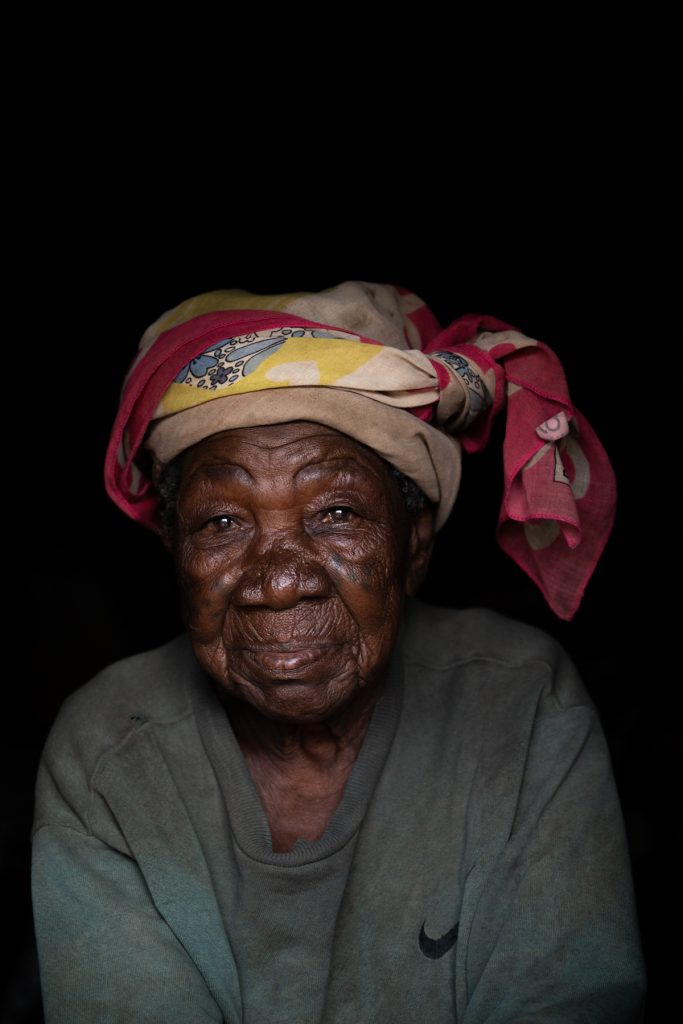
Four Decades in Exile
Bachalbanueya sits inside her home in the Gambaga camp, northern Ghana, where she has lived in exile for over forty years. Hands resting on her knees, she meets our gaze directly. Bachalbanueya was banished after the children of her husband’s other wife accused her of witchcraft, a charge rooted in family tensions following his death. Now elderly and soft-spoken, she is the camp’s longest-standing resident. Her story is not singular. Across northern Ghana, older women, particularly widows, are often scapegoated for misfortunes they had no part in causing.
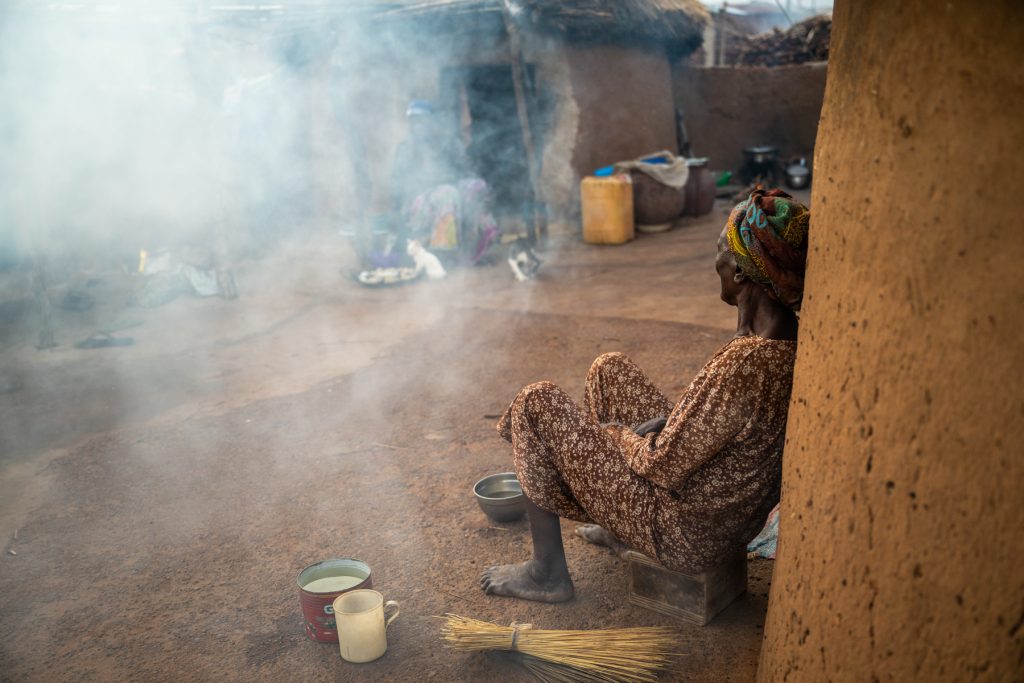
Accused and Abandoned
Condemned without trial and cast from her community, a woman sits outside her makeshift home in the Gambaga camp — a place meant to offer refuge, but filled with reminders of exclusion.
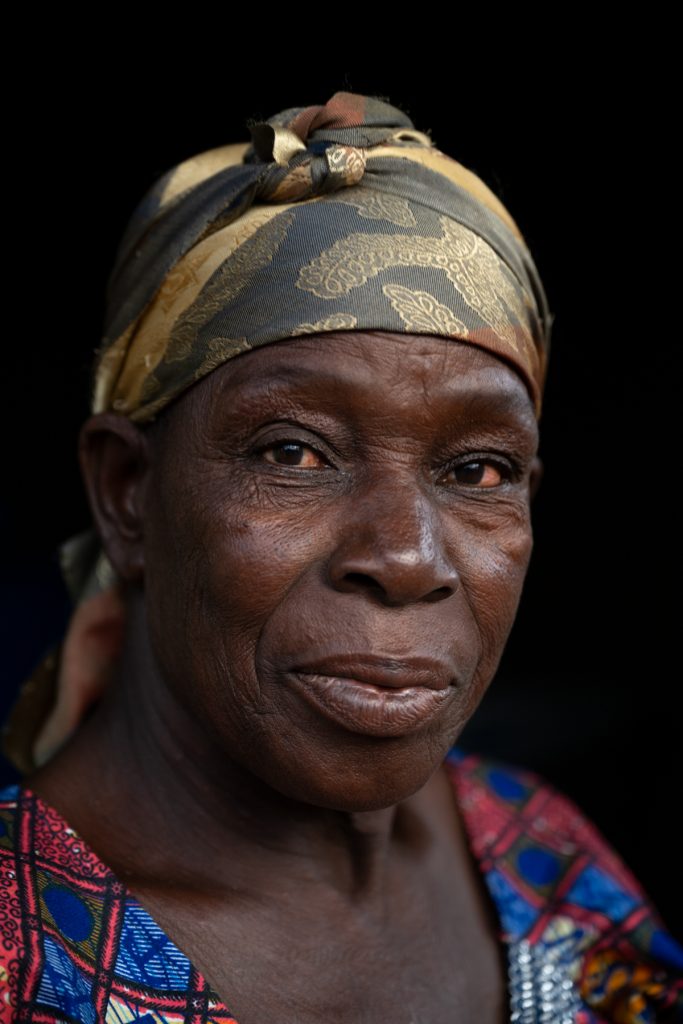
Matis
“A man saw me in a dream, and the next day I was accused of being a witch,” says Matis Awola, a widow, who was accused of witchcraft by a man in her community. The man claimed to have seen her in a dream, leading to her immediate ostracization. Her son brought her to Gambaga camp for alleged witches for safety in April 2025. Despite initial thoughts of suicide, she now lives in the camp with approximately 80 other women who have been accused of witchcraft, occasionally working on a farm in exchange for food. Matis, in her late 50s, hopes to return home to her family.
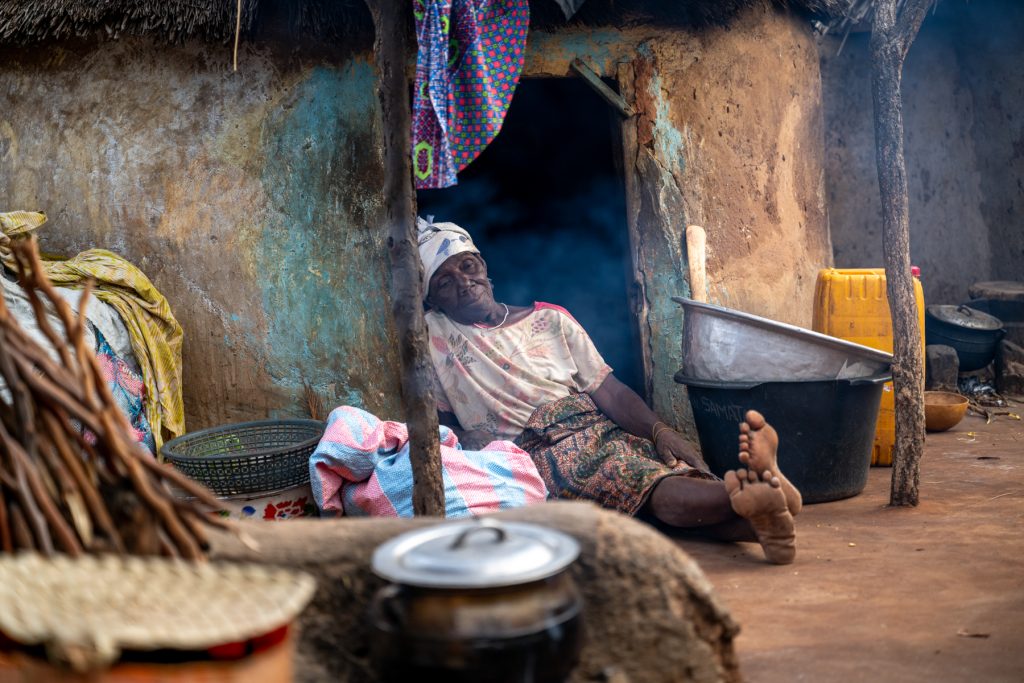
Life in Exile
A woman sits on the ground outside her makeshift home in the Gambaga camp for alleged witches—a small, windowless hut with no door, no bed, and virtually no possessions.
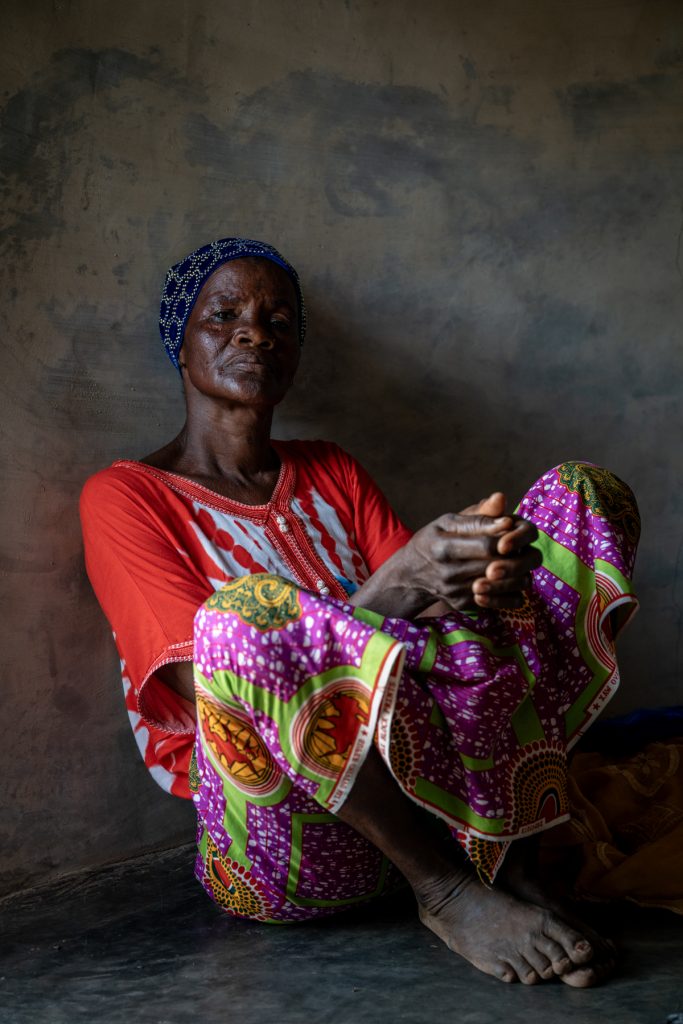
Fusheina
“I’m not happy because my children are not with me,” says Fusheina, a widow and mother of five who has lived in the Gnani camp for accused witches for the past six years. She was expelled from her village after being accused of witchcraft by the local chief, following the sudden death of her nephew. Fearing for her safety, she fled immediately and has not returned since. “I just want to go home,” she says softly. But home is no longer safe — she believes the villagers would harm her if she tried to return. Life in the camp is harsh. “There is no work. We don’t have a farm here, so we have no way of earning money.” She hasn’t seen her children in over two years.
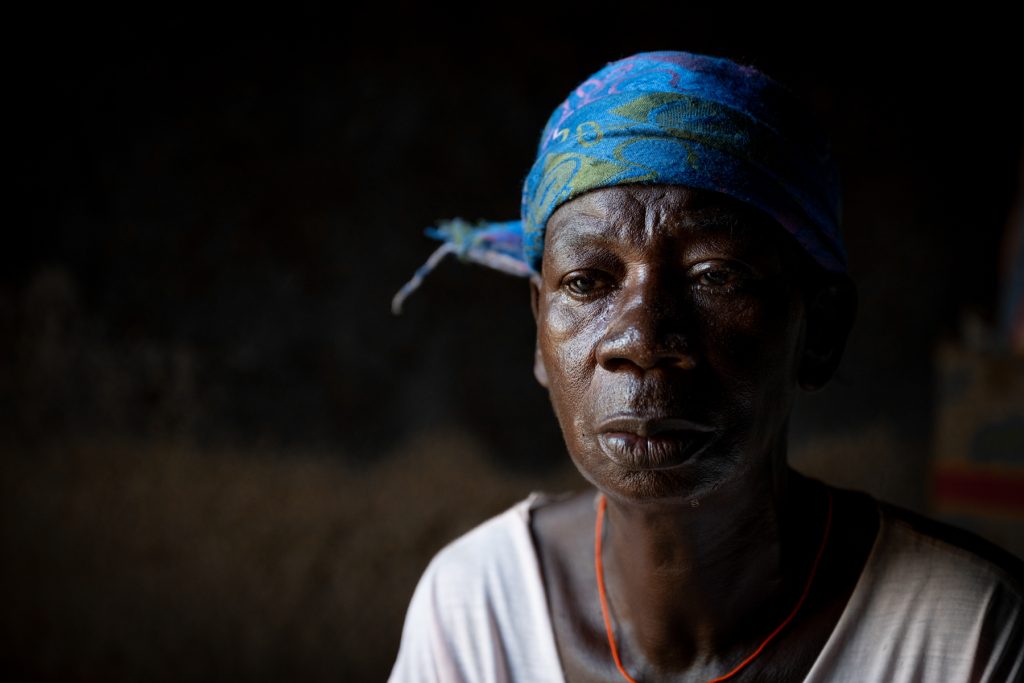
Memonatu Yaw
Memonatu Yaw sits in the shadow of her hut — no door, no window, but not without a story. In northern Ghana, accused women live in exile, holding on to resilience where justice has failed.
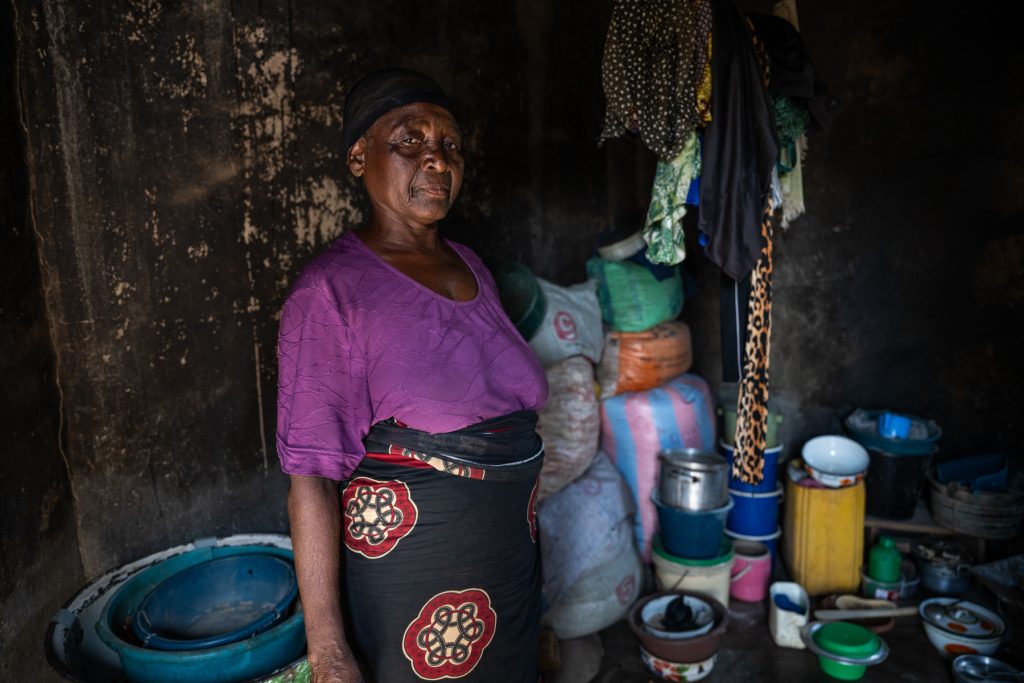
Abdulia
In Kpatinga camp, 68-year-old Abdulia Meili has lived in exile for nearly five years. A mother of eight, she was accused of witchcraft by her own son after her brother fell ill with a stomach ulcer. “My son regrets accusing me,” she says softly. “I’m not happy living here — he didn’t think it would lead to this. But now my family will not accept me back.” Inside her modest hut, with no windows, no furniture, and few belongings, Abdulia’s life reflects the permanent stigma faced by women banished to the camps. Though the settlement offers protection from mob violence, it provides little comfort — and no way home.
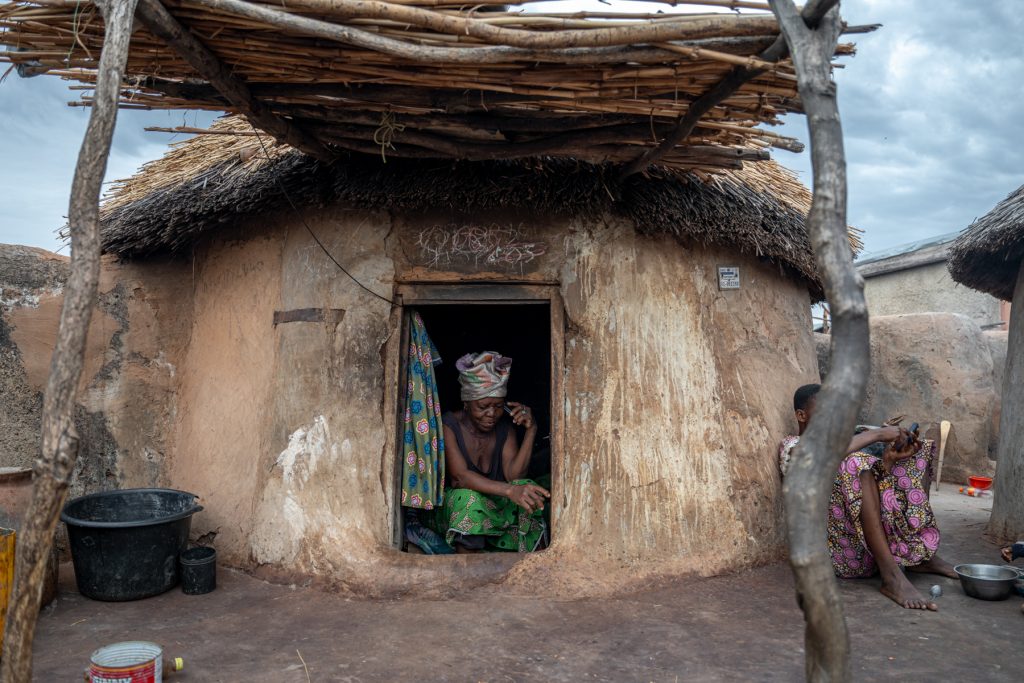
Outcast
In the Gambaga camp for women accused of witchcraft, a woman speaks on the phone from inside her modest hut.
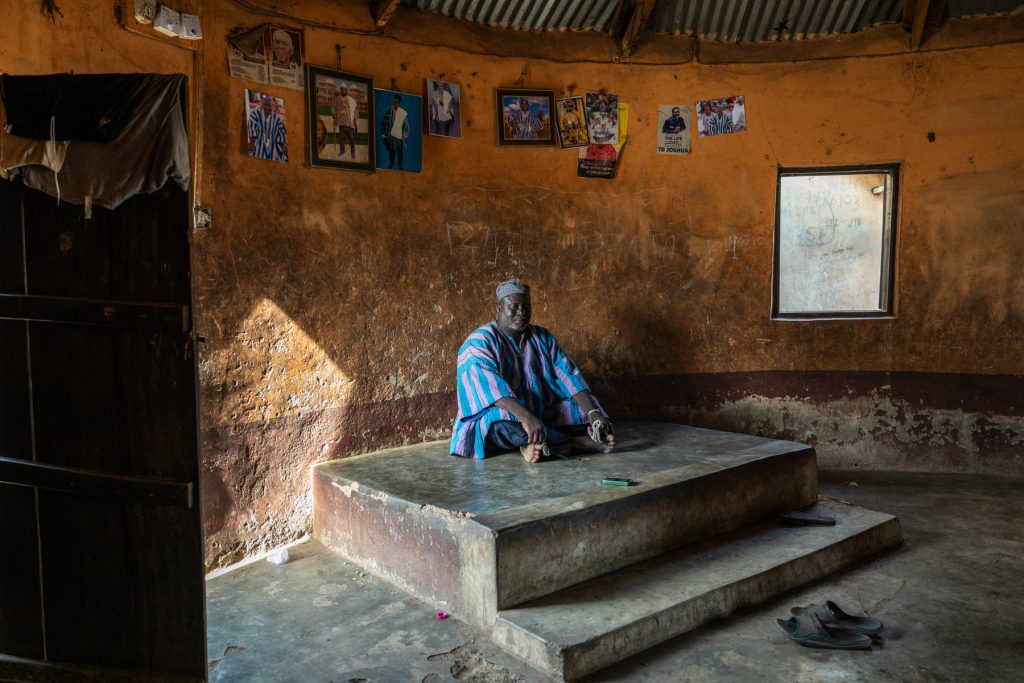
Chief Priest
Alasan Shei, Chief Priest of Gnani camp, oversees a settlement that shelters around 130 women accused of witchcraft. He insists the women are not kept there by force, but admits that the communities which cast them out are rarely willing to accept them back — leaving exile as their only option.
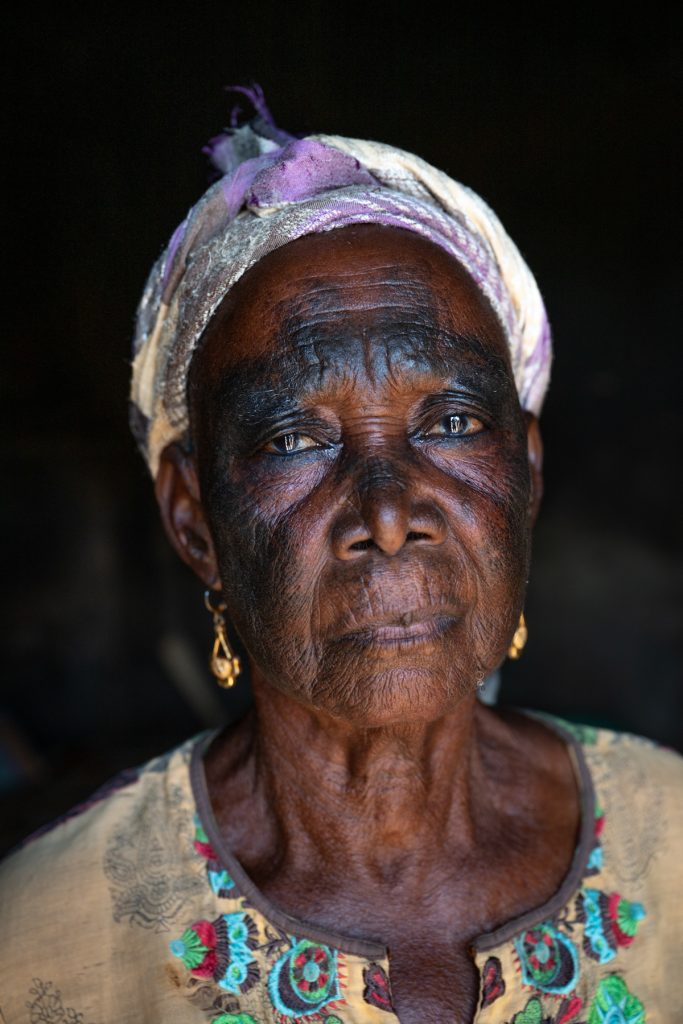
Barikisu
Banished in March 2025 after her stepdaughter accused her of witchcraft, Barikisu Winbie now lives in the Kpatinga camp in northern Ghana. She is one of around 40 women condemned to exile in the settlement, where life is marked by stigma, loss, and resilience.
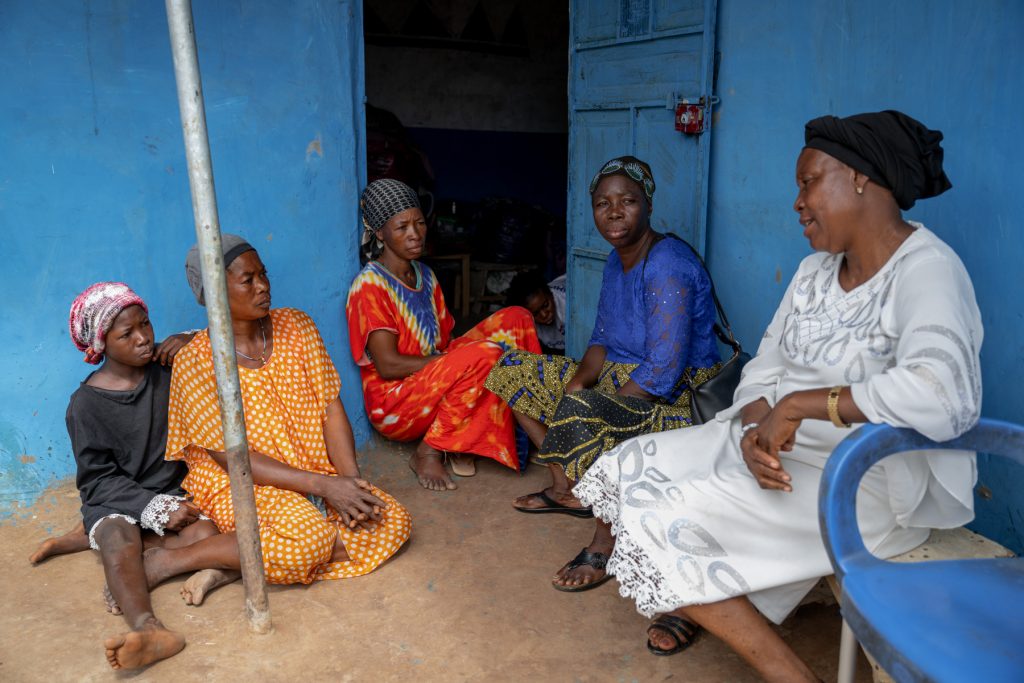
Returning Home
Ama Somani (second from left) sits with her family and Reverend Gladys Lariba Mahama (right), a Presbyterian minister who helped negotiate her reintegration after four years in exile at Gambaga camp. A mother of eight, Ama was accused of witchcraft by her niece and subjected to a traditional ritual that declared her guilty. With her husband absent and no one to defend her, she lived in isolation until April 2025, when the church and local advocates successfully facilitated her return. Though life remains difficult, Ama is overjoyed to be reunited with her children and dreams of starting a soap-making business — a skill she learned during her years in Gambaga.